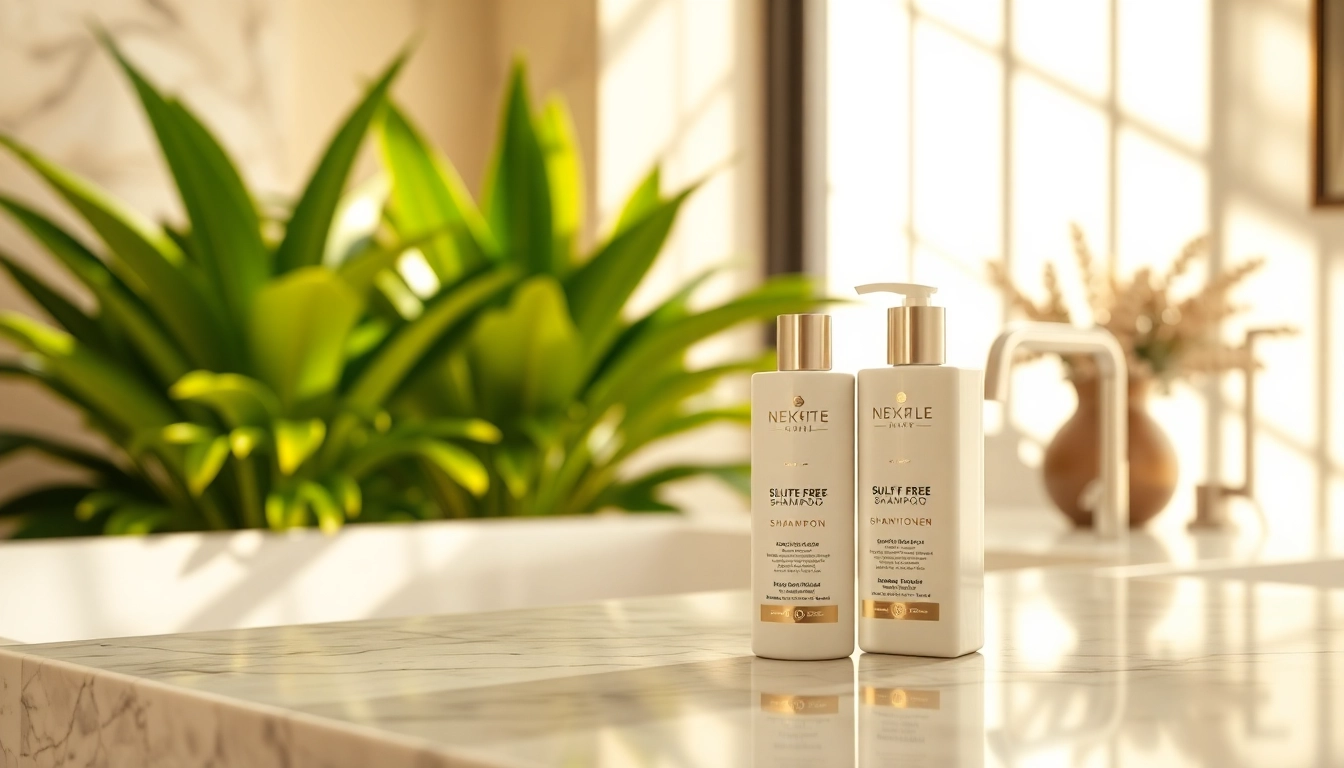Understanding Sulfate Free Shampoo
The quest for healthier hair has led many consumers to explore the world of sulfate free shampoo. As you delve into the different options available, understanding the implications of sulfates and the benefits of switching to sulfate-free alternatives can make a significant difference in your hair care routine.
What Are Sulfates and Their Effects on Hair?
Sulfates are surfactants commonly found in many personal care products, including shampoos. Their primary function is to create lather and cleanse the hair by breaking down oils and dirt. However, sulfates, particularly sodium lauryl sulfate (SLS) and sodium laureth sulfate (SLES), can strip the hair of its natural oils, leading to dryness, frizz, and irritation, especially for individuals with sensitive scalps or color-treated hair.
Benefits of Using Sulfate Free Shampoo
Adopting sulfate-free shampoo can yield numerous benefits. These shampoos are generally milder, making them suitable for all hair types, including sensitive skin. They help retain moisture, promoting healthier strands and reducing the likelihood of frizz. Additionally, sulfate-free options can prolong the vibrancy of color-treated hair, as they avoid stripping dyes. This advantage can result in fewer trips to the salon for color touch-ups
How to Identify Quality Sulfate Free Products
With the rise in popularity of sulfate-free hair care, the market is saturated with options. To select quality products, look for those that are free not just of sulfates but also of parabens, phthalates, and other harmful additives. Ingredients such as aloe vera, coconut oil, and shea butter often indicate a gentle formula that will nourish rather than damage your hair. Reading reviews and checking for certifications (such as cruelty-free) can also guide your choice.
Choosing the Right Sulfate Free Shampoo for Your Hair Type
Solutions for Curly and Textured Hair
Curly and textured hair often requires extra care to maintain its shape and moisture. Look for sulfate-free shampoos that offer hydration and define curls. Ingredients like honey and glycerin work wonders for retaining moisture. Brands specifically targeting curly-haired individuals often formulate their products with these needs in mind.
Recommendations for Color-Treated Hair
For color-treated hair, it is essential to choose sulfate-free shampoos that are designed to protect the longevity of your dye. Shampoos with natural oils and antioxidants help shield hair from fading while reinforcing its health. Products containing argan oil or UV protectants can be particularly effective for this purpose, as they help retain color and enhance shine.
Options for Fine or Oily Hair
If you have fine or oily hair, sulfate-free shampoos with clarifying properties can help manage excess oil without stripping natural moisture. Ingredients like tea tree oil or citrus extracts can provide a refreshing clean. It’s advisable to seek lightweight formulas and avoid heavy oils that can weigh down fine strands.
Best Practices for Using Sulfate Free Shampoo
Application Techniques for Optimal Results
To maximize the effectiveness of sulfate-free shampoos, it’s crucial to apply them correctly. Start with wet hair and use a small amount of shampoo, massaging it into the scalp gently. Focus on the roots, allowing the suds to cleanse the lengths of your hair as you rinse. Due to the absence of sulfates, you may discover that the lather is not as rich but do not be deterred; it’s still working effectively.
Frequency of Wash and Hair Care Tips
Overwashing can lead to dry and brittle hair, even with sulfate-free products. Aim to wash your hair 2-3 times per week, adjusting according to your hair type and lifestyle. If you have particularly oily hair, consider using dry shampoo on off days to absorb excess oil without the need for frequent washing.
Complementing Products for Hair Health
To achieve optimal results with sulfate-free shampoos, don’t forget to pair them with compatible conditioners and treatments. A nourishing conditioner can help lock in moisture after cleansing. For deeper hydration, consider hair masks that infuse additional nutrients, ideally made from natural ingredients.
DIY Alternatives to Commercial Sulfate Free Shampoos
Natural Ingredients to Consider
Creating do-it-yourself shampoo alternatives can be an exciting and cost-effective option. Common natural ingredients like coconut milk, honey, and essential oils can replace commercial shampoos while offering a nurturing and chemical-free clean. Each ingredient brings its unique benefits, so it’s worth experimenting to see what works best for you.
Recipes for Homemade Hair Washes
One simple DIY shampoo recipe includes mixing one cup of coconut milk with a few tablespoons of pure castile soap and a few drops of your favorite essential oil. This concoction gently cleanses while also providing moisture. Another recipe involves blending aloe vera gel with water and a bit of honey for a hydrating wash.
Pros and Cons of DIY Shampoo Solutions
While the DIY approach offers benefits such as knowing exactly what you’re putting on your hair, there are potential downsides too. Some homemade recipes may lack the preservation necessary to last long, and achieving the right consistency might take some trial and error. Always patch-test new ingredients to prevent any adverse reactions.
Long-Term Benefits of Switching to Sulfate Free Shampoo
Impact on Scalp Health and Hair Growth
Switching to sulfate-free shampoo can have long-lasting effects on both scalp health and hair growth. By avoiding harsh chemicals, you’re less likely to irritate the scalp, which is crucial for maintaining healthy follicles. A healthier scalp can lead to improved hair growth and reduced hair loss over time.
Environmental Benefits of Using Eco-Friendly Products
In addition to personal health benefits, sulfate-free shampoos are often more environmentally friendly. Many brands commit to sustainable practices, using biodegradable ingredients and eco-friendly packaging. By choosing to use sulfate-free products, you are contributing to a larger movement towards eco-conscious consumption.
Creating a Sustainable Hair Care Routine
A sustainable hair care routine encompasses not only the products you use but how you utilize them. Beyond selecting sulfate-free shampoos, try to use less water during washes, choose refillable product containers, and recycle packaging whenever possible. This holistic approach to hair care allows you to care for your hair while nurturing the planet.



